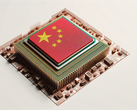The Biden administration announced today a significant overhaul of U.S. export controls on advanced AI chips and technology, creating a tiered system that gives preferential access to key allies while requiring special licenses for other nations. The “AI Diffusion Rule” introduces strict regulations to limit access to the most powerful AI chips and models, particularly for nations considered adversaries, such as China.
The U.S. leads the world in AI now, both AI development and AI chip design, and it's critical that we keep it that way — Gina Raimondo, U.S. Commerce Secretary.
The rule, which will be enforced by the Commerce Department’s Bureau of Industry and Security, marks the first time the U.S. has restricted the movement of powerful AI models in addition to advanced chips.
Under the new policy, 18 trusted allies, including the UK, Canada, Japan, Germany, and South Korea, will enjoy near-unfettered access to the most advanced U.S. AI technology. Meanwhile, other countries will face varying degrees of restrictions and licensing requirements.
Countries not subject to arms embargoes will still be able to obtain AI chips with a collective computational power equivalent to approximately 1,700 of the latest GPUs without requiring a license. These chip orders will not count against country-specific caps, providing some flexibility for nations with emerging AI industries. The rule also caps access to 50,000 GPUs per country, with provisions for government-to-government deals that could increase the cap to 100,000 units. There also are exceptions for GPUs for gaming.
Institutions in certain countries could also apply for a legal status allowing them to purchase up to 320,000 advanced graphics processing units over two years. However, there would be limits on how much AI computational capacity could be placed abroad by companies and other institutions. The exception for the 1,700 GPUs would likely help meet the needs of universities and medical institutions, as opposed to data centers.
China, Russia, Iran, North Korea, and other embargoed nations are already barred from obtaining advanced AI chips. However, the new rule closes a loophole by restricting access to powerful AI models and limiting China’s ability to develop “frontier” AI systems in collaboration with entities in other nations.
The new rules will also prevent parallel imports of advanced chips to arms-embargoed nations. For example, despite previous restrictions, AI chips were successfully supplied to Russia using parallel import mechanisms—through third countries that did not implement sanctions against Russia. Now, the introduction of quotas for these third countries creates a serious obstacle to parallel imports of AI chips into Russia, as companies will no longer be able to buy chips in large volumes and resell them.
The semiconductors that power [AI] and the model weights are, as we all know, a dual-use technology. They're used in many commercial applications, but also can be used by our adversaries to run nuclear simulations, develop bioweapons and advance their militaries —Gina Raimondo.
The announcement has drawn sharp criticism from Nvidia, the world’s leading AI chip manufacturer. In a blog post, the company called the rule “unprecedented and misguided,” arguing that it would weaken America’s global competitiveness.
While cloaked in the guise of an “anti-China” measure, these rules would do nothing to enhance U.S. security. The new rules would control technology worldwide, including technology that is already widely available in mainstream gaming PCs and consumer hardware. Rather than mitigate any threat, the new Biden rules would only weaken America’s global competitiveness, undermining the innovation that has kept the U.S. ahead — Nvidia.
The new export rules will enter a 120-day consultation period, requiring the incoming Trump administration to consider feedback from industry stakeholders and international partners. The Trump administration will have the option to modify or enforce the rules after this period. The timing has raised questions about continuity and the potential for significant policy adjustments under new leadership.
Biden officials defended the urgency of the rule, citing the rapid pace of AI development globally. National Security Advisor Jake Sullivan warned of the “transformative impacts” AI could have on both the economy and national security in the coming years.




















